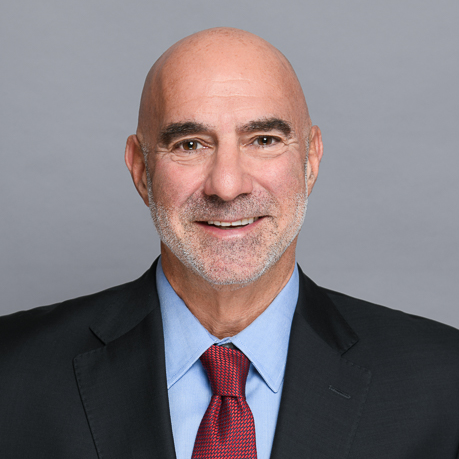
Developing Change: The Role of Volunteers in Juvenile Justice Programs
Introduction
The juvenile justice system typically operates under a cloud of misconception and stigma, with numerous stopping working to acknowledge the capacity for rehabilitation and positive modification. Among the most considerable forces driving this change is the selfless commitment of volunteers. These people, who kindly contribute their time and skills, play a crucial role in changing the lives of youths captured in the web of juvenile justice. In this post, we will explore Creating Change: The Function of Volunteers in Juvenile Justice Programs, taking a look at how volunteering can cultivate personal development, psychological recovery, and significant change within these susceptible populations.
Creating Modification: The Function of Volunteers in Juvenile Justice Programs
Volunteers working in juvenile justice programs function as mentors, educators, and advocates for youth who are typically overlooked by society. They offer psychological support, useful guidance, and motivation for these young individuals to organize their lives. By engaging with at-risk Medical aid for children youth through numerous initiatives-- such as mentoring programs, tutoring sessions, and life abilities workshops-- volunteers assist develop durability and self-confidence.
Understanding the Juvenile Justice System
What Is the Juvenile Justice System?
The juvenile justice system is designed to attend to offenses dedicated by minors. Unlike adult courts, which focus on punishment, juvenile courts typically stress rehab. This method recognizes that children are still establishing mentally and psychologically.
Key Parts of the Juvenile Justice System
The Value of Volunteer Support
Why Are Volunteers Essential?
Volunteers bring distinct abilities and point of views that enhance existing programs within the juvenile justice system. Their contributions can lead to enhanced results for youth by supplying role models who promote positive behavior.
Benefits of Volunteering in Juvenile Justice Initiatives
- Skill Development: Volunteers get important experience that enhances their own professional qualifications.
- Community Impact: Positive relationships in between volunteers and youths add to more powerful communities.
- Increased Awareness: Volunteers can help raise awareness about problems affecting juvenile offenders.
Types of Volunteer Opportunities Available
Mentoring Programs
One-on-one mentoring plans allow volunteers to connect meaningfully with youths dealing with obstacles unique to their circumstances.
Tutoring Initiatives
Volunteers can offer academic support through tutoring sessions that attend to instructional gaps brought on by disruptions in schooling due to imprisonment or other factors.
Life Abilities Workshops
Workshops concentrating on vital skills such as interaction, dispute resolution, and financial literacy equip young people with tools required for effective reintegration into society.
Finding Volunteer Opportunities Near You
How Can I Find Volunteer Jobs Near Me?
There are numerous ways to discover volunteer chances:
Volunteer Opportunities Pleasant Hill
Residents in Pleasant Hill can access various local charities that focus on kids's services. Organizations typically cater particularly to youth involved in the juvenile justice system.

Impact on Mental Health Through Volunteering
How Does Offering Impact Mental Health?
Engaging with others through volunteer work has been revealed to combat feelings of isolation while improving self-confidence and overall psychological wellness for both volunteers and those they serve.

Key Mental Health Advantages for Youths Associated With Juvenile Justice Programs
- Improved Self-Esteem
- Decreased Anxiety
- Enhanced Resilience
Real Stories: Success Through Volunteer Efforts
Sharing success stories from both volunteers and program individuals offers a concrete glimpse into how volunteer efforts translate into genuine change:
Challenges Faced by Volunteers in Juvenile Justice Programs
Despite their worthy objectives, volunteers encounter several obstacles:
1. Emotional Strain
Working carefully with distressed youths can be emotionally taxing; therefore, it's vital for volunteers to practice self-care.
2. Resource Limitations
Many programs face funding scarcities that restrict their capability to provide extensive services; nevertheless, volunteers can often step in to bridge these gaps creatively.
FAQs About Volunteering in Juvenile Justice Programs
What credentials do I require to volunteer? Most programs need only enthusiasm and commitment; however, some might request for background checks or particular training.
Can I choose what type of offering task I want? Definitely! Many companies allow you to pick functions that align with your interests or expertise.
Is there an age requirement for volunteering? Some programs may have age limitations; normally, you must be at least 18 years old or accompanied by an adult if younger.
How much time do I need to commit? Dedication levels differ widely from one-time occasions to ongoing weekly engagements-- it's essential to find what works best for you!
Can volunteering improve my profession prospects? Yes! Numerous employers worth neighborhood involvement highly; in addition, you'll acquire new skills relevant across various fields.
Are there any virtual volunteer chances available? Absolutely! Lots of organizations use remote options such as online tutoring or mentoring through video calls due to increased demand throughout recent times.
Conclusion
In conclusion, the important function played by volunteers within juvenile justice programs can not be overemphasized-- their effect ripples throughout neighborhoods far beyond private interactions with at-risk youth. By investing time-- and in some cases heart-- into these efforts, they not only facilitate individual changes but also contribute favorably toward wider social modifications surrounding understandings of young offenders.
As we progress together towards social development anchored around empathy rather than condemnation-- let's celebrate those unrecognized heroes prepared step up where they're needed most!
This short article acts as an informative guide on how people thinking about making a distinction can get included while shedding light on an essential aspect of our society-- juvenile justice reform led by enthusiastic volunteers dedicated towards developing significant change!